Whether or not you use social media, you have definitely been exposed to conspiracy theories, nonfactual opinions, misinformation, and general distrust for official sources. These effects leak and spread out to the real world, and most of us like to follow numerous accounts of individuals we think are more trust-worthy and authentic, so how does this play out for our pandemic situation?
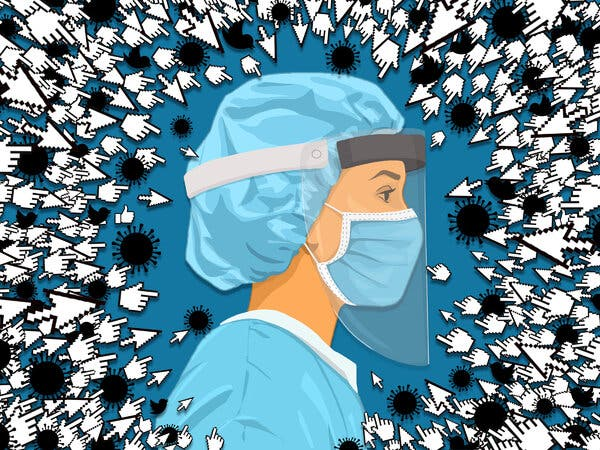
Source: https://www.nytimes.com/2020/08/28/opinion/sunday/coronavirus-misinformation-faceboook.html

Source: https://thefederal.com/covid-19/scientists-artists-fight-misinformation-as-covid-19-myths-spread/
The Gap Between the Government and the People
For those of us in third world countries, we haven’t really reached that point where our lives are entirely digitized. According to the international data agency, the usage of the internet in Sudan is only 31% of the population (13.38 million) and 3% are active social media users. We might think that this is an insignificant number, but in reality, the information on these platforms somehow still spreads, and we can clearly see the effect social media has on our personal virtues, political beliefs, and ideological tendencies.
Sudan’s uprising in December 2018 has really opened our eyes to the heavy bias and politicization of traditional media and news during the reign of the past regime. People felt the responsibility of becoming the alternative media, and with the help of live videos, hashtags, campaigns, and trends, these platforms became the main source of news for people and – accordingly – the largest threat to the former regime. Different tactics against freedom of expression- such as shutting down social media sites- were part of the oppressive attempts used by the ousted regime, leading to the increase in distrust experienced by people.
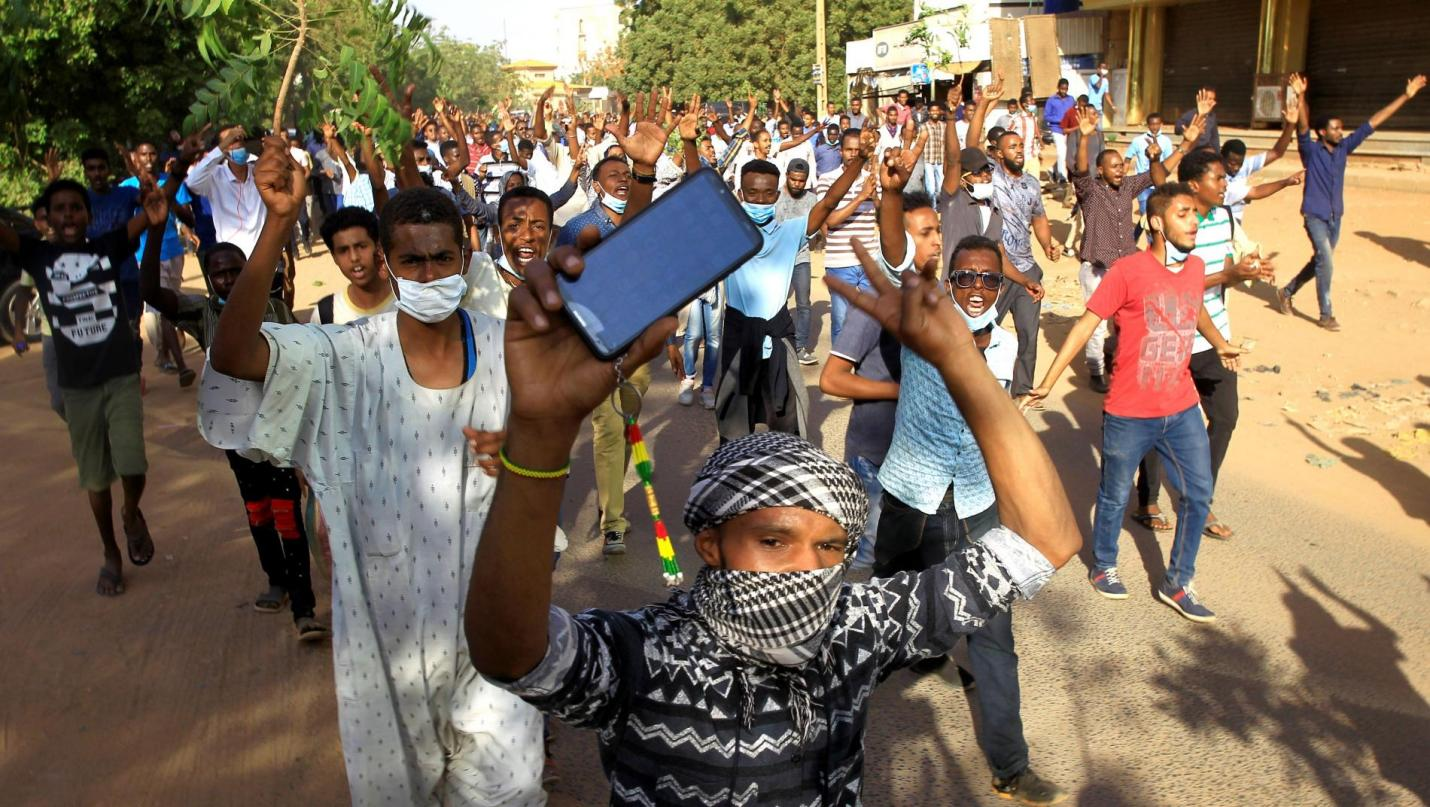
Source: https://qz.com/africa/1510229/sudan-shuts-down-facebook-twitter-instagram-amid-bread-protests/
The current transitional government has notably improved the situation in terms of freedom of expression, but a lot of people are still dissatisfied with the general low transparency of governmental institutions and ministries. During the pandemic, there was an increased demand for accurate news and information, along with the fragile political atmosphere and deteriorating economy. People have started to run out of patience, leading to a larger gap between the people and the government. Not only has this paved the way for people to rely more on individual accounts on social media, but it also heightens the spread of rumors and misinformation; because most of the time nobody knows where or how to access reliable sources.
“For the Sudanese community on Twitter, repetition of a piece of information is what really keeps it alive, attempting to either prove or disprove it. Also, there is insufficient awareness when it comes to getting relevant news sources, for instance, news about mining should be obtained from the Ministry of Energy and Mining… and so forth.”
A.T – Sudanese Twitter Activist
Opinion vs. Fact
The Sudanese society has always been intrigued by conversations about politics, theories, and opinions. It is undeniable that a significant part of our social lives is motivated by political discussions and debates. This is a natural outcome when there is always so much room for different theories to arise; whether it was during the previous infamous regime which was opposed by many, or the current transitional and politically colorful government.
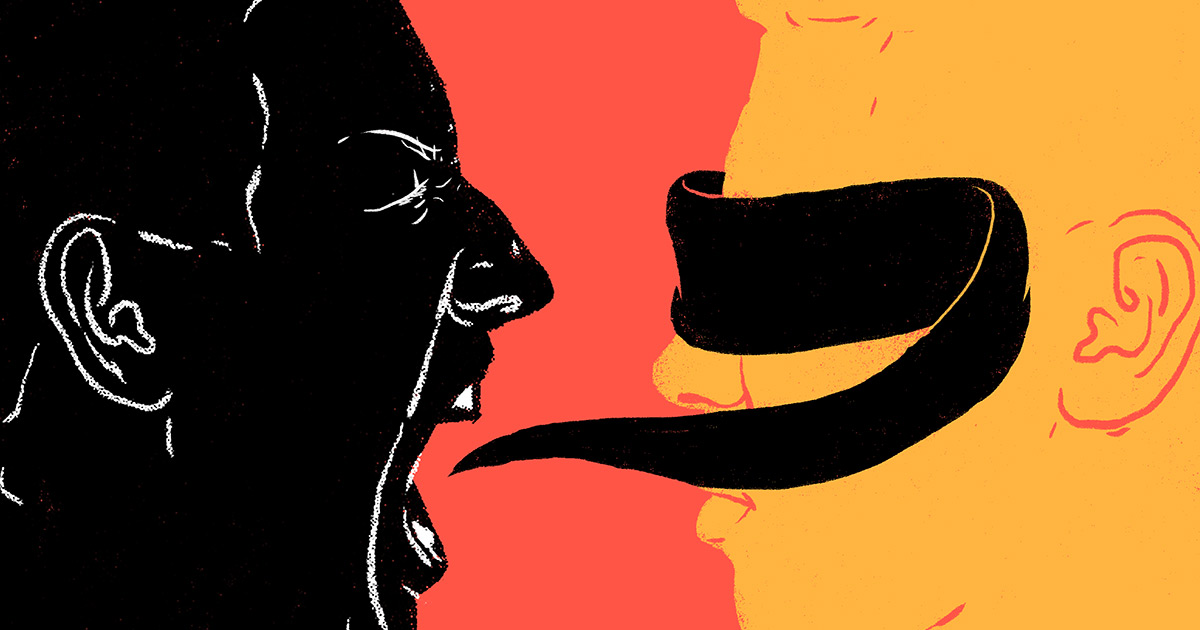
Source: https://datasociety.net/library/media-manipulation-and-disinfo-online/
This can explain why journalism in Sudan, for a long time, has been very weak in terms of news and factual reports. People are drawn to opinion pieces and columns, countless discussions are triggered on WhatsApp groups which allow for increased circulation of these messages and posts. For most people, verification is done by simply checking the writer’s name at the bottom of a WhatsApp message or, at most, viewing their profile on Facebook or Twitter. Regardless of the audience or platform used, these pieces actually gain way more traction within social media and the offline community itself. Not only are they created by influencers, but also local journalists who attract more readership and engagement this way. This assisted in diverting the focus of Sudanese journalism from news and reports, while opinions are getting all the attention.
“There are very few journalists who aren’t affiliated and don’t have explicitly expressed political views. Most journalists are opinion columnists.”
N.T (Correspondent for an international news agency)
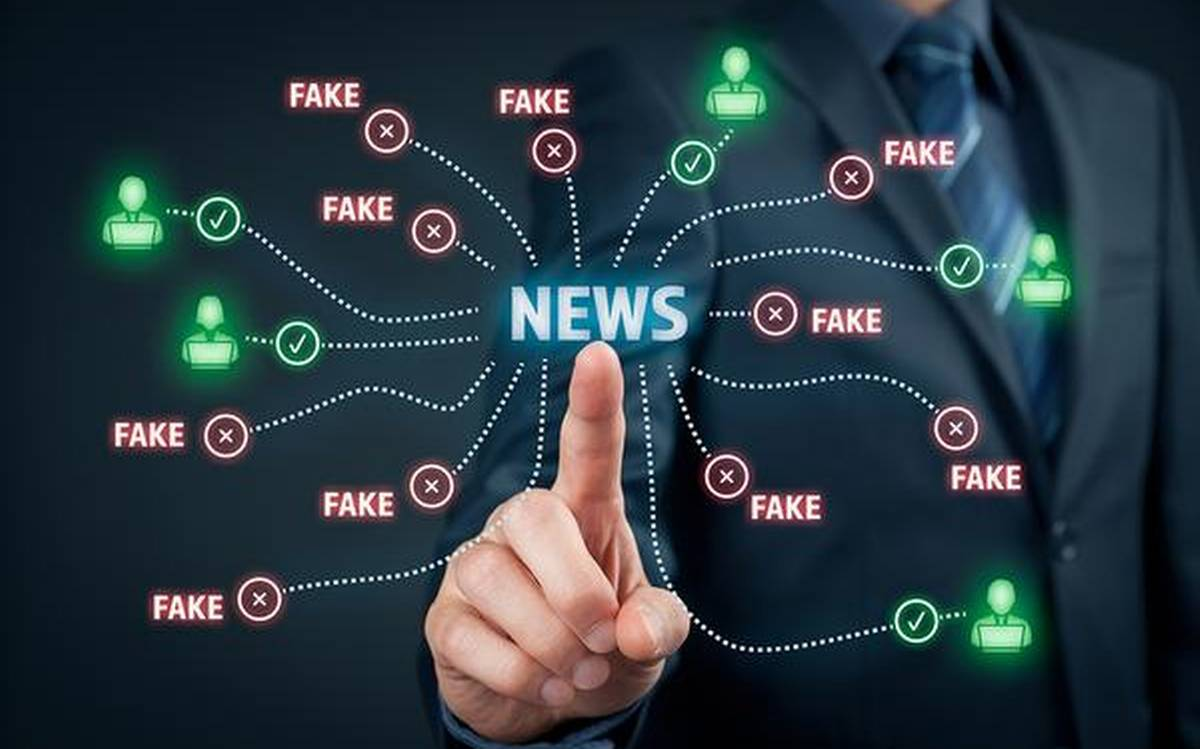
Source: https://github.com/MedipalleTendulkar/Fake-News-Classifier-using-LSTM
It is noticeable that even media organizations don’t utilize social media professionally, which is ironic since a lot of important news ends up getting leaked through individuals with ‘strong’ connections and ‘reliable’ sources before being shared by official channels (assuming they ever do). The use of professional social media pages allows us to make use of data and metrics, studying patterns and reach of different news and information. But unfortunately, WhatsApp is the main source for most smartphone users in Sudan, and we all know that once a piece of information is out there you can never really track it down.
Polarization against Public Health
Sudanese people, of all people, should be able to clearly see how the confusion between political opinions and facts can result in a public health crisis. Many people still believe that there is some type of political gain for the government from this whole pandemic, or at least they get to safely cover up their failure with regards to the economic situation. Such opinions are hard to argue against because using figures and statistics from official sources will be combated with the same arguments: “They control the media so they are fooling us with fake news.”
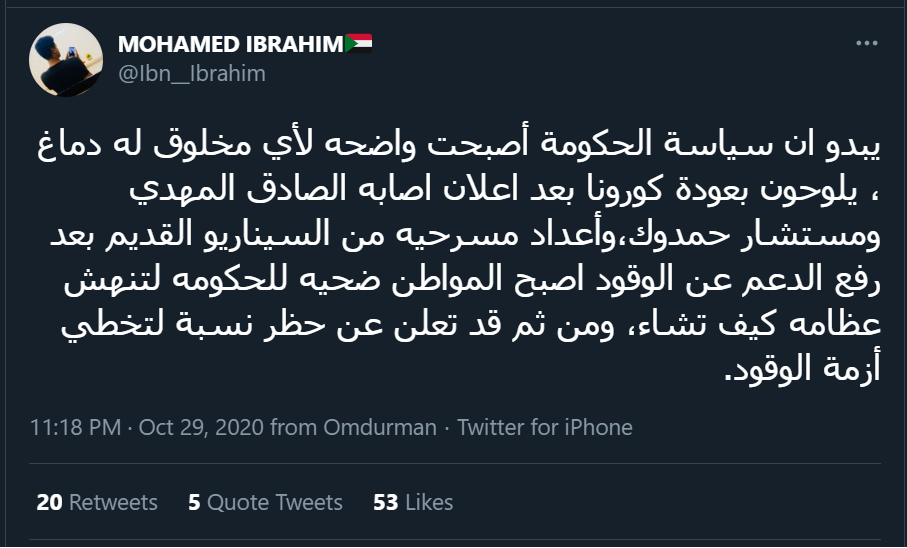
“It seems that the government’s policy has become clear to any creature with a brain, waving the return of Coronavirus after announcing the infection of AlSadiq al-Mahdi and the advisor of Hamdok, and preparing a play from this old scenario after the removal of fuel subsidies….” – Source: www.twitter.com
A lot of similar opinions fill the internet, and generally, it’s either you strongly agree or strongly disagree with them. Some of these opinions might also be influenced by the fact that members of the previous regime have relentlessly aimed to curate and spread fake news and misinformation so as to implant the idea of a failing civilian-led transitional government. And to our dismay, the virus happened to appear during this time so people were not able to distinguish between politics and a public health crisis.
The effect of this on the virus outbreak can be portrayed through a study published in November 2020 by Nature Human Behavior which suggested that COVID-19 is a “profoundly partisan issue in the United States”. They found that US counties that voted for Donald Trump (Republican) over Hillary Clinton (Democrat) in the 2016 presidential election exhibited 14% less physical distancing between March and May 2020, and this was a stronger factor than most other factors such as population density, median income, racial and age demographics.
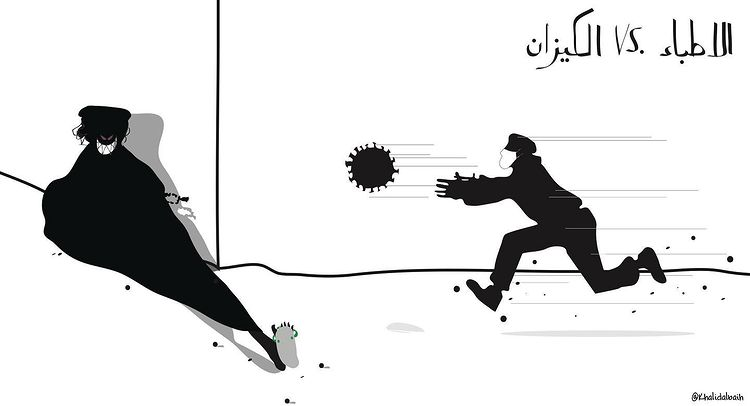
“Doctors vs. Kaizan [members of ousted National Congress Party]” – Photo credit: Khalid Albaih (Instagram @Khalidalbaih)
Some might argue that sparking debates and discussions are crucial for raising awareness among people and that the persistent sharing of well-written opinions, thoughts, theories, and ideas is actually the best way to do so considering Sudanese culture. We should consider that when it comes to facts and news, and especially in an ambiguous situation such as that of COVID-19, we should avoid relying on individuals as authentic sources, but rather base our information on credible, reliable sources that are usually peer-reviewed and fact-checked several times; so unlike influencers on social media, it is their job to never share false information.
We can’t really control people’s use or reliance on different types of media, and we also can’t guarantee that everyone has the right tools to distinguish between opinions and facts, so the idea of influencing each person reading your tweet or watching your video can go both ways, positive or negative. Flattening the curve is a global issue so we shouldn’t ignore the importance of public perception, and it is safe to say that in this modern world, the juxtaposition of traditional vs. social media is of no use since they both complete each other. Social media is instant, versatile, and a two-way conversation so we should learn to regulate and best employ its capabilities.
Sources:
Internews Media Information Ecosystem Analysis: Sudan – October 2020
https://www.journalism.org/2020/01/24/u-s-media-polarization-and-the-2020-election-a-nation-divided/
